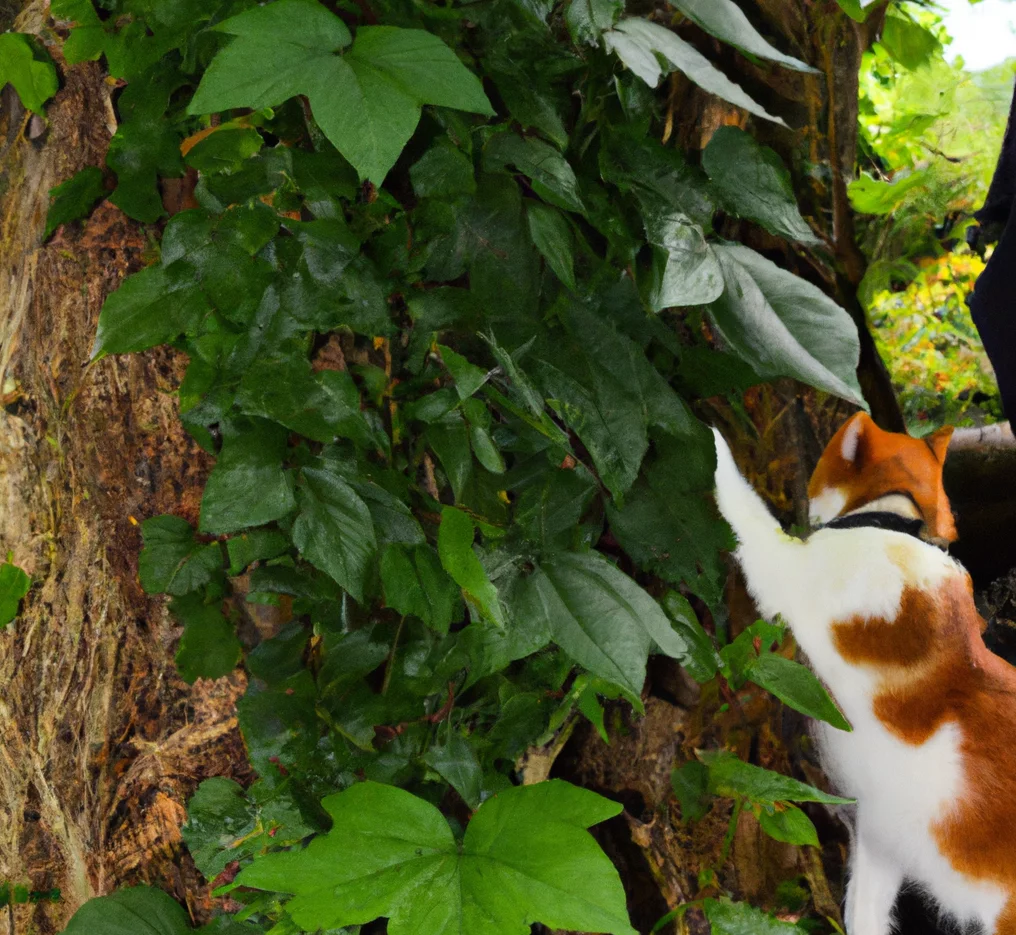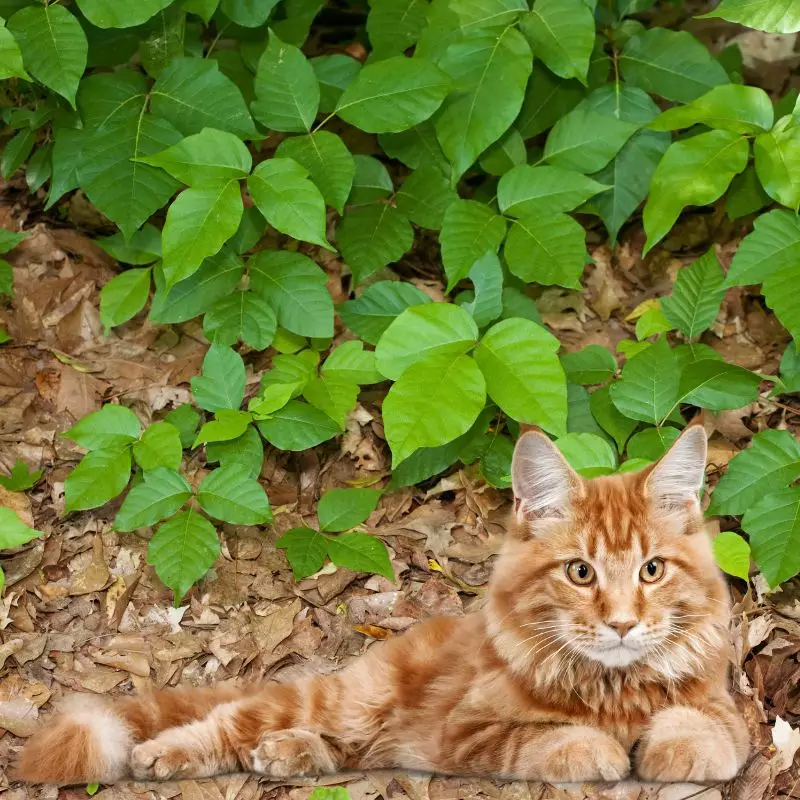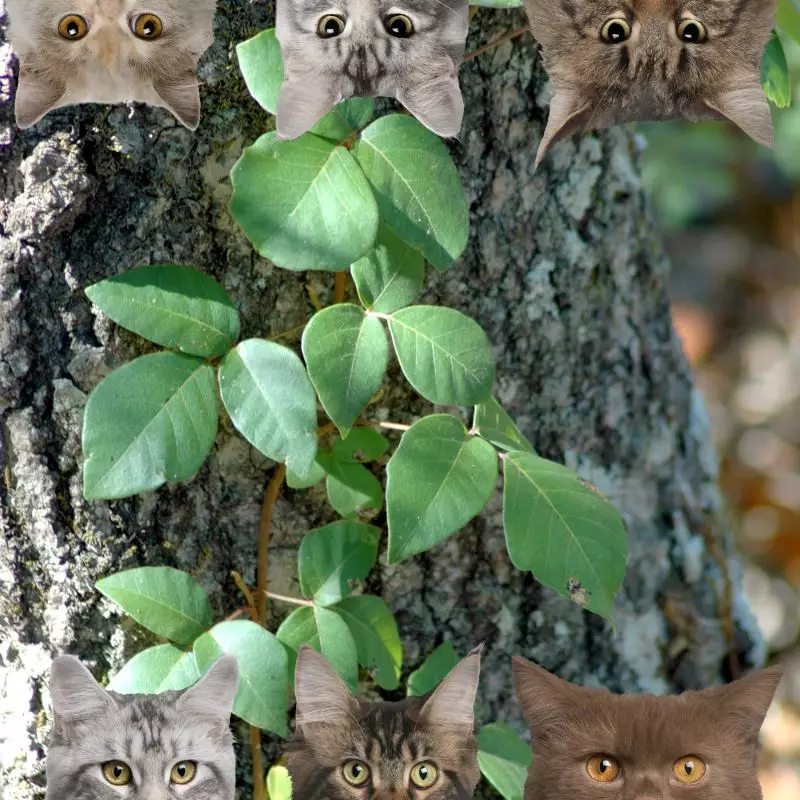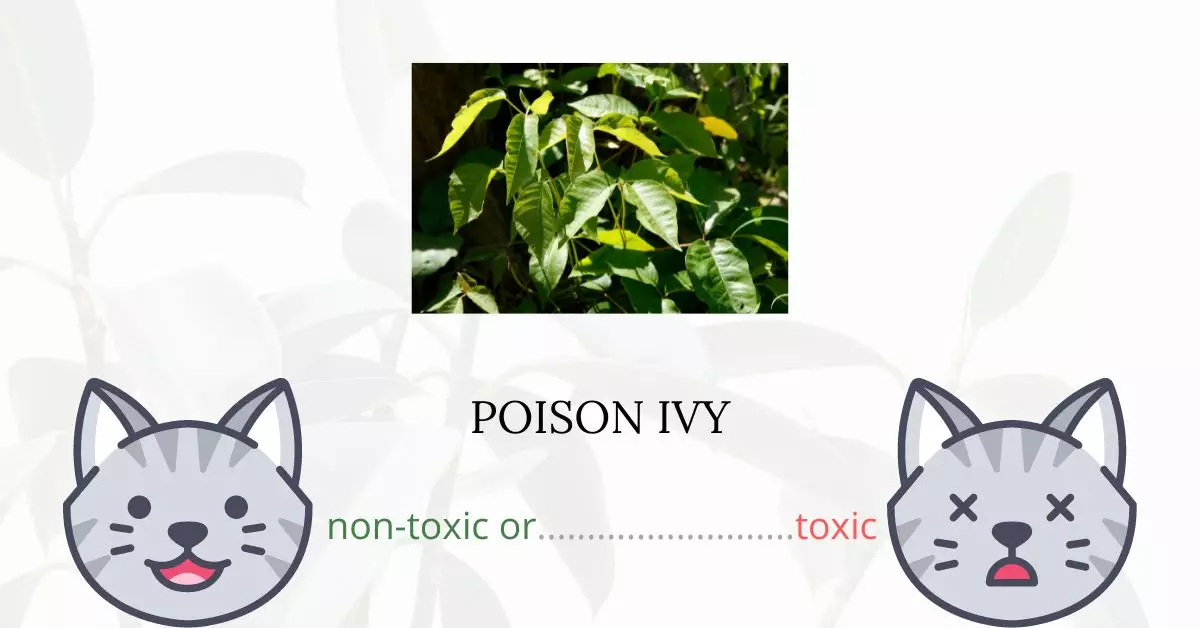Poison Ivy is generally not toxic to cats. While it’s known that humans can suffer from rashes and blisters due to the urushiol oil present in the plant, most cats and dogs do not have severe allergic reactions. However, it’s worth noting that if a cat consumes a piece of this plant, it may experience a mild stomach upset.
This article has been crafted with insights from a team of experienced DVMs (doctors of veterinary medicine). With their expertise and additional research from high-authority websites such as ASPCA and PetMD, we aim to provide the most accurate and up-to-date information about the potential risks of various plants, focusing on Poison Ivy in this instance, and their effects on our feline friends.
Can Cats Eat Poison Ivy?

In general, cats can eat poison ivy without becoming sick. Since each animal reacts differently when it is swallowed, it is advised to watch for vomiting, loss of appetite, or diarrhea.
When urushiol, a sap or oil found in poison ivy, comes into contact with the skin, it can cause an allergic reaction. Fortunately, allergic reactions to urushiol are uncommon in dogs and cats.
Animals could come into contact with the plant oil by walking through the plants and getting it on their fur and skin. The pet’s coat needs to be cleansed to prevent transferring the plant oils to people at home.
What is Poison Ivy?

Poison ivy is a well-known harmful plant that causes an itchy skin rash. This plant generates urushiol, an oily sap that causes an itchy, grating allergic reaction. Up to 90% of those exposed to poison ivy oil get an unpleasant rash. This is a plant that grows throughout the American continent.
The leaves of poison ivy are its most famous feature. Three leaflets make up each leaf. Poison ivy develops as a shrub and a vine, and has a catchphrase that goes, “Leaves of three, let them be.” In the spring, its summer-green leaves turn reddish, and in the fall, they turn yellow, orange, or red. White berries could be found on a poison ivy shrub.
Keeping Cats Away From Poison Ivy

If you want to create a bristly barrier for cats without destroying the natural appearance of the garden or hurting them, fill in spaces around beds with a collection of pine cones or branches.
Commercial cat repellant that mimics the smell of predators may cause them to flee, and scattering coffee granules or citrus peel (orange, lemon, lime, or grapefruit) around the backyard may deter feline visitors by irritating their nostrils.
Plants to Avoid For Your Cats
If you are a cat owner and unsure if the plants growing in your yard are harmful to your cats, check out this list of toxic plants for cats. You can also check our list of non-toxic plants for cats.





